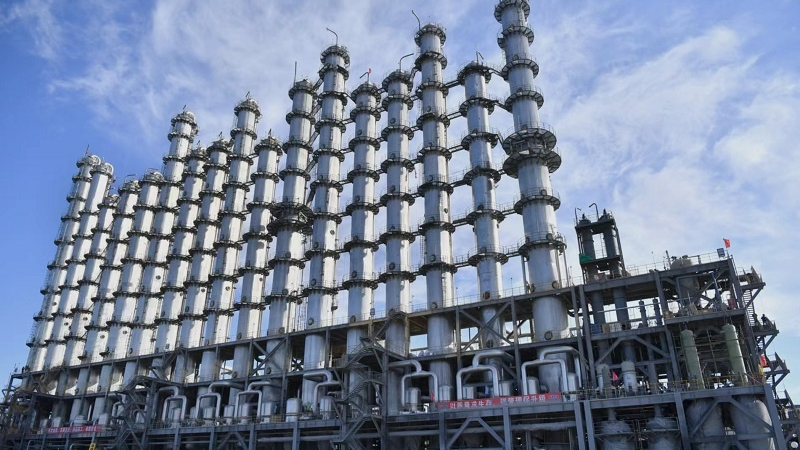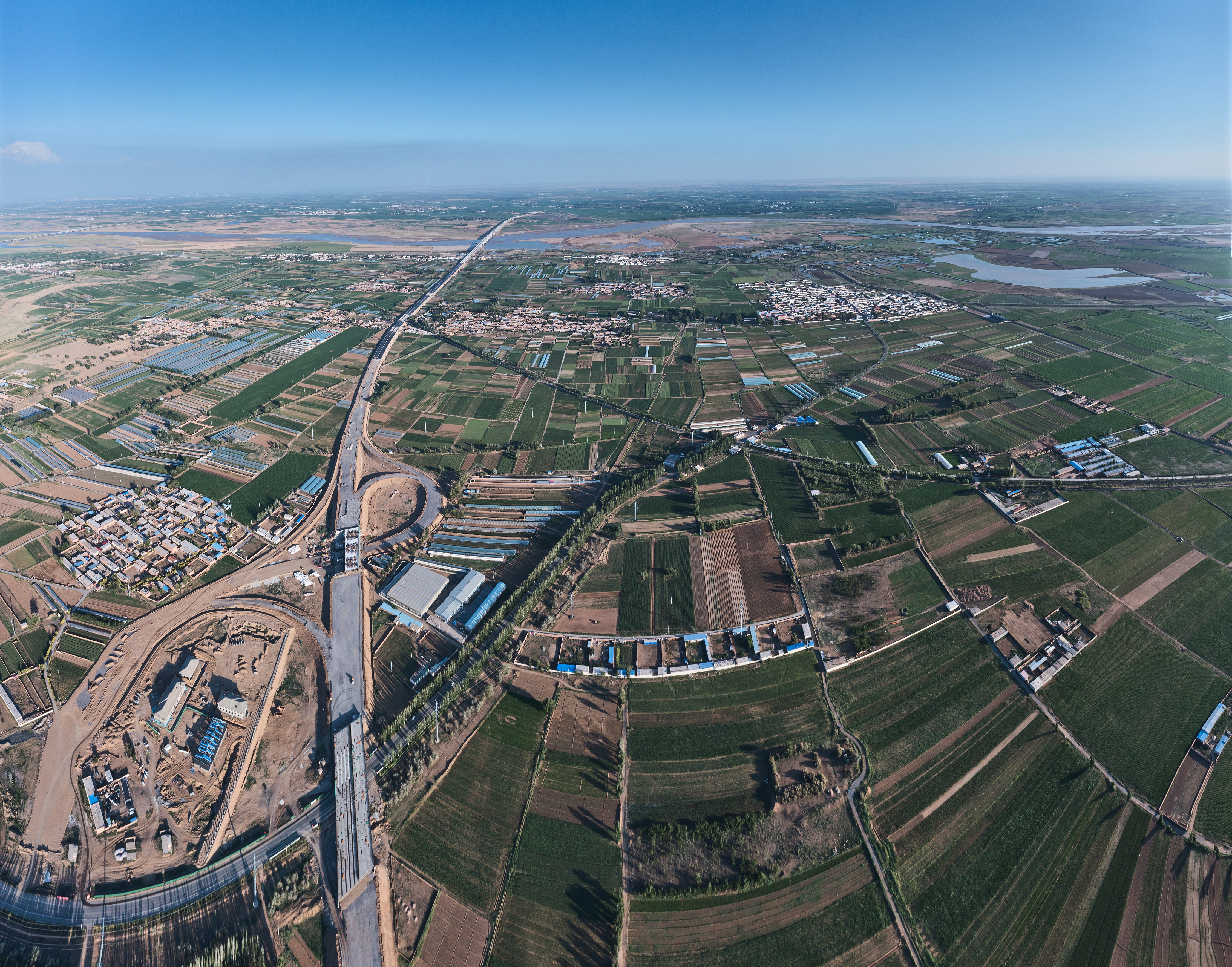
A crystalline silicon project in Baotou, north China's Inner Mongolia Autonomous Region. /CMG
A crystalline silicon project in Baotou, north China's Inner Mongolia Autonomous Region. /CMG
For decades, the city of Baotou in north China has been considered a center of steel and power production. Over the past seven years, however, the city has been pivoting toward the crystalline silicon photovoltaic industry as it seeks new economic strengths.
The output value of Baotou's photovoltaic industry will exceed 200 billion yuan (roughly $27 billion) in 2023, according to data from the city's industry and information technology bureau.
The photovoltaic industry depends on technologies that convert sunlight into electricity through semiconductor materials. Silicon is, by far, the most common semiconductor material used in photovoltaic technologies or solar cells.
By the end of this year, Baotou's production capacity of polysilicon and monocrystalline silicon will account for more than 40 percent of China's and more than 35 percent of the world's.
Baotou is the first city in China whose photovoltaic industry output value has exceeded 100 billion yuan. At present, the city houses more than a dozen leading photovoltaic enterprises, producing photovoltaic modules with high photoelectric conversion efficiency.
Business insiders said that these enterprises chose to settle in Baotou because of the city's location, resources and industrial infrastructure.

The construction site of Zhaojun Yellow River Bridge, Baotou, north China's Inner Mongolia Autonomous Region, June 19, 2023. /CFP
The construction site of Zhaojun Yellow River Bridge, Baotou, north China's Inner Mongolia Autonomous Region, June 19, 2023. /CFP
Located at the southern end of the Mongolian Plateau, Baotou is an important transportation hub connecting China's northern and northwestern regions. With cross-border railway services, it is also a gateway for Inner Mongolia Autonomous Region to open up to the outside world.
Rich in coal, iron, rare earth and other resources, Baotou is the largest industrial city in Inner Mongolia and an important industrial base in China.
Liu Yongming, director of the Baotou Development and Reform Commission, said that the city's strong equipment manufacturing capacity provides a technical guarantee for the development of the crystalline silicon photovoltaic industry.
In 2022, the industrial added value of the photovoltaic industry in Baotou increased by 114.6 percent, making the industry a key engine to drive the city's industrial growth.
But the rapid growth of the photovoltaic industry has also made Baotou feel the pressure of the ruthless competition in recent years. Due to overcapacity, the price of photovoltaic products has repeatedly hit new lows since the end of 2022.
In order to increase the competitiveness of its photovoltaic industry, Baotou has focused on building a complete industrial chain from the beginning, covering mainly the production of industrial silicon, polycrystalline silicon wafers, and solar cell wafers.
To optimize the business environment, Baotou has established multiple communication channels between enterprises and relevant government departments so that the city can provide high-quality services to facilitate production, trade and investment.
At present, Baotou is extending the photovoltaic industrial chain by improving the coordination and cooperation of upstream and downstream supply chains within its industrial ecology.
Li Mingzheng, deputy general manager of Baotou Meike Silicon Energy, introduced that his company's final products have been sold to a branch of another company that also supplies raw materials for them. He said the cooperation is conducive to the healthy development of the industry.
In September, the 2023 China Silicon Industry Conference was held in Baotou, gathering industry professionals across China to promote exchanges and cooperation within the photovoltaic industry.
In 2023, about 50 photovoltaic projects have landed in Baotou, with a total investment of 156.8 billion yuan. It is expected that the city's production capacity of polysilicon and monocrystalline silicon will account for half of China's market by 2025.
Business leaders predict that the competition in China's photovoltaic industry will become more fierce in the following years, and only players with advantages in talent, technologies and market share could survive the process.